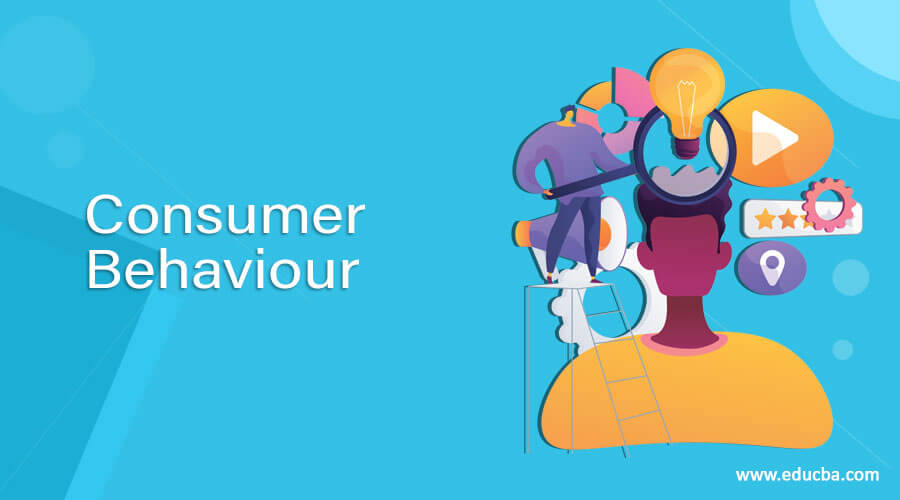
Introduction to Consumer Behaviour
The consumer, The KING of the market, is the one that dominates the market and the market trends. Lets us know the King first. A consumer pays to consume the goods and services an organization sells. The consumer plays a vital role in the demand and supply chain of every economic system of every nation. The producers of the goods and services would lack the motive to produce as there would be no demand for their products.
Who is a consumer?
A consumer need not just be an individual; it can also be an organization. A consumer can be someone who will buy either goods or services, or you can also specify the goods and services as economic services or products, or goods or commodities. A consumer is the end user or a target to whom the goods and services are sold. In simple words, a consumer can be described as:
- A person or an organization specifically targeted to sell a company’s product or service.
OR
- Again, this someone can either be an individual or an organization that pays the price to use the goods and services of an organization.
OR
- A person or an organization who is the final user of the goods and services produced by a company.
OR
You can consider all three definitions to define a consumer.
The consumer is the decision maker here in the economic system. He can make the following decisions.
- The decision of buying or not a product in a store or at a shop
- The consumer will decide if he wants to be influenced by the marketing strategies and the organization’s advertisements for a product or a service.
- Many consumers are influenced by marketing and advertisements
- The consumer decides what they want to buy and when they want to buy it
- The consumer chooses between competitors and their products.
Decision-making is the power given to the consumer.
Everyone has been a consumer and participated in the consumer market. The consumer market is where the consumer has the right and the power to decide between spending their money. Even buying a packet of chips from a store is part of the consumer market as you buy a packet of chips by paying a sum. Here you are also making a decision. This is the decision to purchase goods and spend your money. You are deciding where to spend your money and what you should spend your money on. You are choosing amongst competitors. The more active the nation’s consumers, the more active the nation’s consumer market will be.
What is consumer behaviour?
Now that you know who a consumer is, you must also understand consumer behavior and how it affects the organization.
Consumer behaviour is a physiological process. It is all related to the emotions of the consumer. In this process, the consumer starts by recognizing the need for the product and then finds a way or a medium to solve these needs, making purchase decisions like planning whether to buy a particular product. Then he confirms the information, jots down a plan, and implements the purchase plan.
Consumer behavior is physiological; it is human behavior it can change with the slightest change in the market, the atmosphere, and the trend. Studying consumer behaviour is a challenge take a look at a few challenges, that is, how can you study consumer behaviour?
How to study consumer behaviour?
- You must first understand the physiology of the consumer of a specific class, standard, and market. You must know how the customer thinks, reason, feels, and selects between the products and services offered.
- Then understanding the environment of the customer is essential. The environment includes the consumer’s family, social atmosphere, culture, etc.
- Consumer psychology is different when they shop and decide to spend their money.
- The knowledge of the consumer about the products, the industry, and your competitors. How can you influence the customer with minimum knowledge by educating him about your products and services?
- How can you motivate the consumer’s buying behavior, helping him decide between products, the importance of the product, and how will their decision affect them?
- Based on its targeted consumer behaviour, how might the business enhance its marketing strategy and marketing campaigns?
- How does a single consumer decision affect a group of consumers that is a group of people? This can include their friends, their family, etc.
- The consumer’s behavior also depends on buying new products and reusing the old ones. Organizations also need to understand how reusing products influence a consumer.
- Consumers also make decisions based on the after-sales services, the organization’s, and distributors’ services. Service offered to a consumer also matters in influencing their behavior.
- How does a single or a group of consumer behavior affect the nation’s society, atmosphere, and economy?
What are the types of consumer behaviour?
The following are the different types:
Programmed or routine behaviour
Buying regular and daily goods that involve much less money and minimum research work fits under this type of goods buying behaviour. For example buying goods from the grocery store that are goods used daily like milk, eggs, bread, etc
Buying products occasionally or limited decision making
When a consumer tries to gain information about unfamiliar brands of familiar products of not very high-value goods, a consumer makes a decision, however, occasionally. The time required to gather such information is relatively moderate, for example, buying goods like clothes and cosmetics.
Complex and involvement or extensive decision making
Buying products such as computers, laptops, property, cars, education, etc., which requires tremendous research and economic involvement, comes under this category or type. This decision take time as it needs too much research work as the consumer will study almost all the options available in his economic range; the research is prolonged as the customer would want to buy the best option available for the price he is paying.
The last type is the impulse buying or conscious planning type.
The job of the organizations here is to educate the consumers about their goods and services and motivate them to buy them. Predicting a group’s single or consumer behaviour is not just difficult because you never know what factors might influence them and when. The reason is that consumers today have a wide variety of choices, and several factors influence the behaviour of consumers. Let’s look at the notes below to understand what affects consumer behaviour.
Important factors that influence consumer behaviour
You might be wondering what influences these consumers and how we analyze when their purchase patterns change. Of course, only the influencing factors will confirm what will change the consumer’s buying pattern.
We have four main factors that affect consumer behaviour they are;
1. Consumer Behaviour – Cultural factors
Culture plays a very vital role in determining consumer behaviour; it is subdivided in
- Culture
Culture is a very complex belief of human behavior; it includes the human society, the roles that the society plays, the behaviour of the society, its values, customs, and traditions. Culture must be examined as it is a significant factor influencing consumer behaviour.
- Sub-Culture
Subculture is a group with the same values, customs, and traditions. You can define them as the nation, religion, racial groups, and people sharing the exact geographic location.
- Social Class
Society possesses social class; every society has one. It is essential to know what social course is being targeted; usually, the buying behavior of a social class is quite similar. Remember, income and other factors describe a social class of a group of consumers.
2. Consumer Behaviour – Social Factors
Social factors are also subdivided into the following
- Reference groups
Under social factors, reference groups have a great potential to influence consumer behaviour. Of course, its impact varies across products and brands. This group often includes an opinion leader.
- Family
A consumer’s behavior is influenced by their motivations, personalities, families, and family members who can have two or more people living together because of a blood relationship or marriage.
- Role and status
People who belong to different organizations, groups or club members, and families play roles and have a status to maintain. These roles and positions they must hold also influence consumer behaviour as they decide to spend accordingly.
3. Consumer Behaviour – Personal factors
Several personal factors also influence consumer behaviour. This is one major factor that influences consumer behaviour. The sub-factors under the personal factor are listed below.
- Age and life cycle stage
The consumer’s age and life cycle are the two essential sub-factors under personal factors. With age and the life cycle, the consumer’s purchase options and the motive of purchase change with his decisions to buy products change. Hence this stage does affect consumer behaviour.
- Occupation
The occupation of a consumer affects the goods and services a consumer buys. The occupations group has an above-average interest in buying different products and services organizations offer. Organizations produce different products for other occupational groups.
- Financial or economic situations
Everything can be bought and sold with the help of money. If the economic situation of a consumer is not good or stable, it will affect his purchase power; if the consumers or the economy of a nation is suffering a loss, it defiantly affects the consumer’s purchase or spending decisions.
- Life style
People originating from different cultures, subcultures, occupations, and even social classes have different living styles. Lifestyle can confirm the interest, opinions, and activities of people. Different lifestyles affect the purchase pattern of consumers.
- Self-concept and personality
Every individual is different and has different and distinct personalities. Their distinct personalities and distinct physiology affect their buying decisions. Hence the purchase of products and services differs from person to person.
4. Consumer Behaviour – Psychological factors
Four psychological factors affect consumer behaviour very strongly. Let’s look at them in detail.
- Motivation
Motivation is activating the internal needs and requirements of the consumer. It can also be described as the goals and conditions of the consumers. Motivation arouses and directs the consumers towards specific goals. These needs can be psychological, needs of security, social needs, esteem needs, and also self-actualizing needs.
- Perception
Perception is sensing the world and the situations around you and then deciding accordingly. Every unique look at the world and the situations differently. Individuals’ judging abilities and capacities differ, so they look at the world differently. This is what separates the decision-making abilities.
- Learning and experience
Learning is the research of products and services before the consumer decides to buy a product. Nowadays, learning and self-education are done both online and in groups. Experience is taking a lesson from the past experiences of a product and service. Learning and expertise are essential in influencing the consumer’s behavior as it affects their purchase decision.
- Attitude and beliefs
Attitude is a consumer’s favorable and unfavorable emotional condition or feeling and tendency to react to specific actions and behaviors. The beliefs of people are the belief that people assume the products to be as made as the specifications of the products. Hence attitudes and beliefs are also critical and must be considered while studying human behavior.
Related Articles
Here are some articles that will help you to get more detail about the Influence of Consumer Behaviour, so go through the link.

